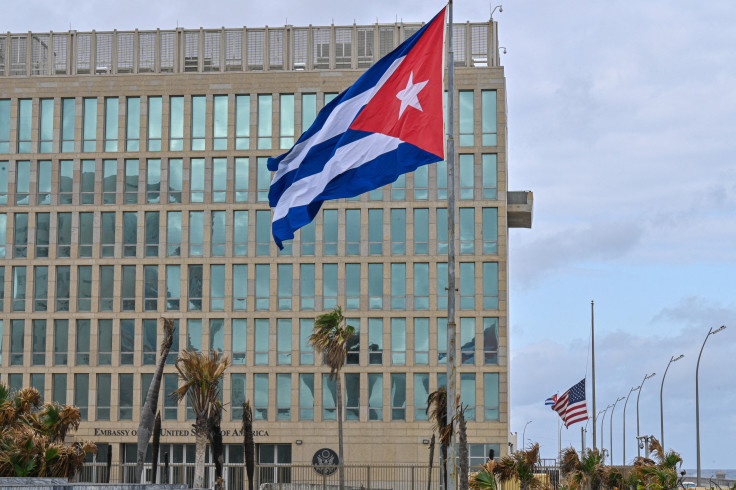
Cuba started freeing prisoners as part of a deal brokered by the Vatican just a day after the Biden administration announced plans to lift the U.S. designation of the island as a state sponsor of terrorism, a decision that could be short-lived given the government change.
More than a dozen individuals, including some detained following the historic 2021 protests, were freed on Wednesday, according to civil groups tracking detainee cases. Among them was Reyna Yacnara Barreto Batista, a 24-year-old tattoo artist sentenced to four years in prison for public disorder during the protests. Speaking from her home in Camagüey, she told The Associated Press she was released along with eight men.
"I was sleeping and they told me to gather all my things, that I was free," Barreto Batista told Associated Press. She added that authorities warned her release was not a pardon and that any misconduct might lead to her return to prison.
The Biden administration revealed Tuesday that Congress had been notified of its intent to remove Cuba from the state sponsor of terrorism list. The decision, however, is likely to be reversed as early as next week as Donald Trump, a fierce critic of Cuba's communist regime, takes office.
In fact, Secretary of State nominee Marco Rubio said during his confirmation hearing on Wednesday that the incoming administration won't be bind by the decision and it can easily be reversed.
By Wednesday afternoon, the Cuban Observatory of Human Rights confirmed that 18 prisoners, including Barreto Batista, had been released.
Officials said the prisoner releases were part of a broader agreement, with more detainees expected to be freed before Biden leaves office on January 20. Havana, however, denied any direct link between the prisoner releases and the U.S. policy change.
Cuba's Foreign Minister Bruno Rodríguez criticized the U.S. designation for the country, calling it "a tool of political coercion against sovereign states." He described the move as part of the Vatican's Ordinary Jubilee of 2025, a Catholic tradition encouraging reconciliation. Cuban authorities committed to gradually releasing 553 prisoners under legal and humanitarian guidelines.
The 2021 protests, sparked by economic hardship and widespread power outages, led to hundreds of arrests and drew international condemnation of Cuba's government. Cuban officials blamed U.S. sanctions and media campaigns for fueling the unrest.
Meanwhile, the decision to lift Cuba's terrorism designation faces uncertainty. Trump and his incoming Secretary of State, Marco Rubio, have signaled plans to reimpose sanctions.
During his nomination hearing on Wednesday, Rubio also referred to the Cuban crisis, promising an ultimatum to its leaders by saying they can either open up the country and its economy or be content with "being the owners of a fourth-world country."
"They're going to have a choice to make, those that are in charge there: do they open up to the world and allow the individual Cuban to have control over his economic and political destiny even though it threatens the security and stability of the regime or do they triple down and just say we'd rather be the owners and controllers of a fourth world country that is falling apart?" he concluded.
© 2025 Latin Times. All rights reserved. Do not reproduce without permission.




